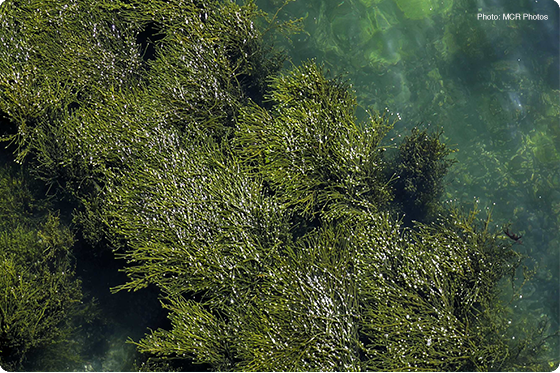
On March 28, Maine’s Supreme Judicial Court ruled in Ross v. Acadian Seaplants (No. Was-17-142, 2019 ME 45, WL 1388499), holding that rockweed—a variety of brown algae that many in the state harvest for both personal and commercial use—is private property. As a result, rockweed harvesters must now gain permission from shorefront property owners before they can collect rockweed from the intertidal zone (the area of wet sand that falls between the high- and low-tide marks) in front of the owners’ property. The plaintiff in this case was a coastal homeowner who argued that he had a right to deny harvesters permission to take rockweed in the intertidal zone, as the seaweed was affixed to his private property. The defendants—a commercial seaweed harvesting company and the Maine Department of Marine Resources—contrarily argued that the rockweed in question was held by the state in trust, and should, thus, be free for members of the public to harvest.
Generally, the court examined the public trust doctrine as it relates to the intertidal zone. The public trust doctrine is a carryover from English common law that stipulates certain natural resources (such as navigable waters and fisheries) should be preserved in perpetuity for public use and enjoyment. After the United States gained its independence from England, the states were left to determine the ownership of intertidal land, with each state having the freedom to modify its laws governing such. In 1810, Maine qualified its authority over the intertidal zone by deeming it private property subject to the public’s right to use the wet sand for navigation, fishing, and fowling. Due to this qualification and considering the holdings of two related cases, the court in concluded that the public may not harvest living rockweed growing in and attached to rocks in the privately-owned intertidal zone.
In justifying its decision, the court first addressed whether harvesting living rockweed from the intertidal zone could constitute a form of “navigation” or “fishing,” and, thus, fall within the scope of rights reserved for Maine’s public in 1810. Regarding navigation, the court noted that the term has been interpreted to involve some mode of transportation, and has been construed to encompass activities such as traveling over frozen intertidal water and passing on intertidal land to access housing. However, the court emphasized that the primary activity in navigation must be crossing the intertidal water or land itself. Although there is a navigational component to harvesting rockweed, the court determined that the action was secondary when compared to Acadian’s main goal of harvesting. Regarding fishing, the court refused to broaden its interpretation of the term to encompass the harvesting of marine plants. In its view, the fundamental biological differences between fish and rockweed as well as the differing methods used to harvest each demonstrated that Acadian could not be in the business of “fishing.”
After making the previous determinations, the court next determined how best to achieve a “reasonable balance” between private landowners’ interests and the rights held by Maine in public trust. Ultimately, it concluded that, even when taking a broader view of Maine’s public trust rights, the harvesting of seaweed attached to intertidal land falls outside the scope of activities that can be carried out as a matter of public right. The court noted that the additional burdens of seaweed harvesting that are imposed on owners of intertidal land are not reasonable when the nature of the interference consists of cutting and removing marine plants from land attached to the dry sand on which the public had no independent rights, and which requires the use of specialized equipment. Furthermore, the court pointed out that Acadian’s harvesting activity was similar to other intertidal uses that had been held outside of the public trust doctrine in the past, such as cutting ice.
Although the court’s ruling helps clarify public and private rights, critics of the decision have stated that it will prove “extremely unfortunate for an entire industry and Maine’s economy,” with the president of Acadian Seaplants noting that it had spent more than $1 million in the state over the past year on operations, transportation costs, and capital investments, according to Bangor Daily News. Furthermore, critics of the decision have argued that the sustainable harvest of rockweed has created jobs and grown businesses that produce sustainable and environmentally friendly products. However, coastal landowners refute these claims, arguing that they can better conserve the state’s natural resources in the intertidal zone by having the power to exclude rockweed harvesters. The Maine Department of Marine Resources is currently determining whether any state laws and/or regulations can or should be changed in light of the decision. For more about this issue and the history behind the recent ruling, please see the National Sea Grant Law Center’s article in The SandBar, which can be found here.













